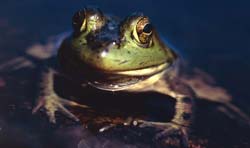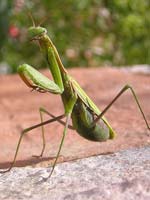Be Pesticide Free
Pesticides are chemical or biological substances designed to kill, control, or repel a variety of living things. Pesticides include insecticides (insect control), herbicides (weed control), fungicides (mold/fungus control), and rodenticides (rodent control). Pesticides are poisons which are used widely in and around homes, work places, and recreational areas.
Pesticides and other lawn chemicals are carried off the lawn by runoff during a rainfall and enter storm drains which lead to lakes, streams, and waterways. When pesticides enter the waterway, they create a toxic environment for aquatic organisms. Pesticides in the water can decrease the quality and availability of water for drinking, swimming and fishing.
Why are they harmful?
Pesticides can be toxic to creatures beyond the targeted pest, and will also kill helpful insects, aquatic organisms, birds, and animals. These impacts are commonly the result of the overuse and misapplication of pesticides. When used sparingly, and according to the product label, negative impacts caused by pesticides can be reduced.
- Of the 30 most commonly used lawn pesticides, 19 are carcinogens, 16 are toxic to birds, 24 are toxic to fish, and 11 are deadly to bees.
- Approximately 7 million wild birds and 6 to 14 million wild fish are killed annually by pesticide poisoning, mistaking the small pesticide pellets for seed and grain.
- According to the EPA, 74% of homeowners use pesticides on lawns and gardens.
- Homeowners use approximately 78 million pounds of pesticides every year, spending $9.3 billion dollars, mainly for aesthetic purposes.
 Pesticides can be toxic to creatures beyond the targeted pest
Pesticides can be toxic to creatures beyond the targeted pest
The EPA has stated that no pesticide is safe. Pesticide contact can have acute and chronic health effects to humans. Acute effects mirror allergy symptoms and chronic effects are much more serious, though less common.
How to Prevent Water Pollution & Maintain a Healthy Environment
Tips to get you started:
Plant native shrubbery, flowers, trees, and turf. Native plants thrive with the soil conditions, rainfall, and climate in your area, with little to no chemical additions.
Mow your lawn at the tallest height suitable for the variety of grass planted. The roots of your lawn grow deeper as the grass grows taller. During a drought deeper roots can better utilize water.
Aerate your lawn. Create space for beneficial organisms to enhance the soil and reduce compaction to boost root growth.
Obtain a soil test. Know exactly how much fertilizer your lawn needs. Some common lawn problems are caused by over fertilizing.
 Natural predators feed on common garden pests
Natural predators feed on common garden pests
Consider using natural alternatives:
- Use horticultural oil sprays or diluted liquid soaps.
- Use botanical insecticides, which include naturally occurring plant extracts.
- Sprinkle corn meal gluten on lawns to inhibit weed growth.
- Pour boiling water on weeds or in ant colonies.
- Physically remove weeds by digging or pulling.
- Spray vinegar on targeted weeds.
- Bait slugs with beer or yeast water.
- Lure yellow jackets into narrow necked bottles with juice or sugar water.
- Understand that not all insects are harmful and some may even be beneficial. Ladybugs, green lacewings, decolate snails and toads, and preying mantis' feed on common garden pests.
If You Must Use a Pesticide, Use the Least Toxic and...
- Identify the pest and use a target specific pesticide.
- Read the label and apply accordingly.
- Only apply pesticides where needed and clean up any spills.
- Call a certified professional pesticide applicator.
- Contact the Lincoln-Lancaster County Health Department to properly dispose of any unused pesticides.
Additional Resources
For more information on applying pesticides or to report illegal dumping of chemicals, fertilizers, and other hazardous wastes in the storm drain, please contact:
Lincoln-Lancaster County
Health Department
Environmental Quality
402-441-8000